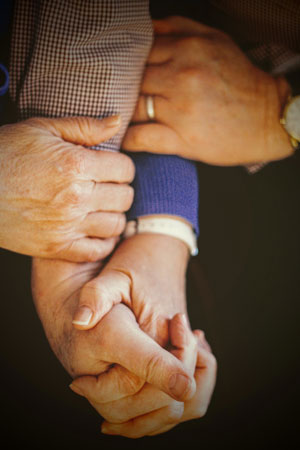 Sudden Loss and Grief
Sudden Loss and Grief
In this time of Covid 19 no one is left untouched by loss and grief either because they have lost a loved one themselves or because someone they know has. There are no definitive stages or time frames for grieving and no absolutes. Grief is emotional, not intellectual, and every individual will experience it differently.
In response to sudden loss, people will often experience: Overwhelming shock including feelings of numbness, anger, despair, disbelief or denial, anxiety/panic, guilt or self-blame. Restlessness, poor concentration, loss of interest in life, inability to sleep or eat, nightmares, exhaustion, long periods of crying and irrational thoughts/actions may also occur.
There are several ways in which sudden loss, such as the kind of experience so many are having in the face of Covid 19, differs from expected loss as when someone dies from a long-term illness.
- There is no time to prepare. You have had no time to absorb the reality that your world is about to change dramatically. There is no gradual transition, no time to make changes in yourself or your expectations about your life or world.
Even with an expected death, it can be challenging to adjust to a loved one no longer being here. This challenge is even greater in the case of a sudden loss as the griever’s capacity to cope and function is significantly impaired. The loss does not make sense and the death may continue to be experienced as inexplicable for a long time. - Sudden losses are more likely to happen with no one else around. Survivors of sudden loss are left wondering about their loved one’s last moments: “Were they frightened or in pain and did they know how much they were loved?”
- Sudden loss can leave more unanswered questions including how the death happened, could it have been prevented and could I have done more? Grievers often wonder why the loss had to happen—why did it happen to their loved one and why now?
- The state of shock may last longer. Grievers cycle through a variety of emotions as they begin to cope with their loss. Shock, numbness and disbelief are feelings every griever has but those experiencing a sudden loss will likely spend more time in disbelief and be delayed in their ability to begin coping and moving forward.
- A sudden loss is more likely to be the result of a tragic event such as a car accident, an act of violence or a deadly virus such as Covid 19. If someone else is responsible for the death of a loved one, the griever might experience resentment and even rage that could continue for years after the loss.
- People suffering a sudden loss may experience a loss of security and confidence in the world. They now know that loved ones can be taken away without warning and may become hypervigilant about further loses. Avoidance and anxiety can lead to states of anxious withdrawal as the world has become a frightening and unpredictable place.
In order to adjust to a sudden loss and move forward, grievers will eventually have to accept that in life and in death, there are some questions that have no answers and that they may never find closure. Other adjustments may include finding a way to express their love and goodbyes to the person who died through a ritual or type of remembrance. Depending on the circumstances that lead to the sudden loss, grievers may need to find a way to live in peace with regrets they have in connection with their loved one and redirect any energy they have invested in guilt or anger.
Some helpful strategies for coping with grief include:
Try not to isolate. You will want to check in with your normal support system. It could be a circle of friends, a significant other, siblings or a support group you belong to.
- Express your feelings. Crying is normal and natural in the face of a tragic loss. Trying to conceal or suppress your emotions can lead to negative behaviors such as drinking excessively, using drugs, or acting out in risky ways.
- Take advantage of resources. Consider grief counseling either individually or within a support group.
- Be patient with yourself as you may not be at your best for a while. When grieving, people may experience a variety of symptoms for some time after a loss including feelings of depression, disrupted sleep patterns and difficulties focusing or concentrating.
- Be good to yourself. As you begin to return to work and daily routines, practice self-compassion and engage in self-care activities such as exercising, socializing, and practicing mindfulness even though you may not experience immediate relief or satisfaction from these activities.
People are often confused about how to provide support to a family member or friend who has suffered a sudden loss.
- Even if you are unsure of what to say, make a point of saying something. It can be as simple as saying that you’re sorry to hear what happened and then leave it to them to decide if they want to talk further about it or not. Calling, texting or sending a card are other ways of expressing your concern. Nothing will make the situation better so focus on being there to listen empathically when needed.
- Tolerate your own feelings of helplessness and discomfort so you can provide needed support to the griever.
- Do not tell the person what to think or do and resist offering your own religious or spiritual beliefs. Instead, think of something practical that you can do to help such as bringing food, doing some shopping for them, or offering to take their kids to school or their dog for a walk.
- Do not judge how the person is coping – everyone deals with trauma in their own way and in their own time.
- It’s alright to mention or talk about the person who has died. Ask the bereaved person if they are comfortable with this if you are unsure how they will react.
All of us have or will at some time grieve the loss of a loved one. When the death is unexpected and sudden, the intensity and duration of grieving will likely be magnified. Continual support of family and friends is essential as overwhelming feelings of anxiety and depression can recur frequently. The task of adjusting to life without their loved one is enormous but you can make a difference by being present in their lives: call, text, Facetime, invite them for coffee or a walk, share an interest of yours or an activity with them, even if it has to be virtual.
Laura Oliff, Ph.D., Associate Director of the American Institute for Cognitive Therapy, is a New York State licensed psychologist, Founding Fellow and Diplomate of the Academy of Cognitive Therapy and a member of the Association for Behavioral and Cognitive Therapies. She has extensive experience in both cognitive behavior therapy (CBT) and psychodynamic therapy with individuals, couples and families. Dr. Oliff specializes in the treatment of generalized anxiety, obsessive-compulsive disorder, health anxiety, depression, bipolar disorder, a wide range of eating disorders and adult ADHD. Other areas of specialization include the development of effective interpersonal and workplace communication skills, interpersonal conflict resolution, problem-solving strategies, relationship enhancement and infertility. Managing life transitions such as divorce and dating in mid-life, death of a parent or spouse, caring for an elderly relative, retirement and aging are also areas of interest.

 Try not to isolate. You will want to check in with your normal support system. It could be a circle of friends, a significant other, siblings or a support group you belong to.
Try not to isolate. You will want to check in with your normal support system. It could be a circle of friends, a significant other, siblings or a support group you belong to.